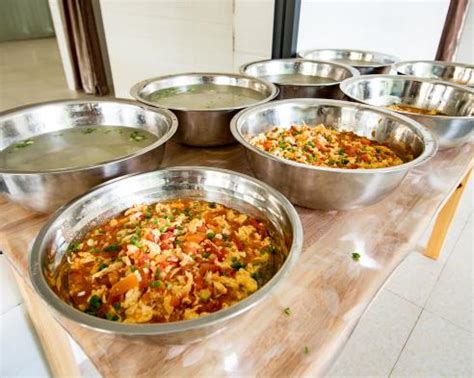餐饮情绪价值的话
Title: Managing Emotional Wellbeing in the Hospitality Industry: Insights from Hangzhou
Emotional management is crucial in the dynamic and demanding environment of the hospitality industry, particularly in a vibrant city like Hangzhou. Let's delve into effective strategies and insights for maintaining emotional wellbeing in the realm of restaurant management in Hangzhou.
Understanding the Emotional Landscape:
Hangzhou's culinary scene is renowned for its diversity, creativity, and high standards. Restaurant managers often find themselves navigating through a myriad of emotions, from the exhilaration of creating culinary delights to the stress of managing operations and satisfying discerning customers.
Challenges Faced:
1.
High Expectations:
Hangzhou residents and visitors alike have high expectations when it comes to dining experiences. Meeting these expectations consistently can be emotionally taxing.2.
WorkLife Balance:
Long hours and irregular schedules are common in the restaurant industry, making it challenging for managers to maintain a healthy worklife balance.3.
Handling Pressure:
The fastpaced nature of the industry, especially during peak hours or special events, can create intense pressure for managers to perform.4.
Dealing with Criticism:
Constructive criticism is essential for improvement, but it can sometimes be difficult to handle, particularly in a culture where food is deeply intertwined with tradition and personal preference.Strategies for Emotional Wellbeing:
1.
SelfCare:
Prioritize selfcare practices such as regular exercise, adequate sleep, and healthy eating. Schedule downtime to recharge and rejuvenate.2.
Stress Management:
Practice stressreduction techniques such as mindfulness, deep breathing exercises, or meditation to stay centered during hectic times.3.
Effective Communication:
Cultivate open and transparent communication channels with your team. Encourage them to express concerns and provide support when needed.4.
Set Realistic Goals:
Break down larger objectives into smaller, achievable goals. Celebrate milestones to maintain morale and motivation.
5.
Continuous Learning:
Stay updated with industry trends and best practices through workshops, seminars, or online courses. Embrace learning as a lifelong journey.6.
Seek Support:
Build a strong support network of colleagues, mentors, or industry peers who understand the unique challenges of restaurant management.7.
Embrace Flexibility:
Remain adaptable in the face of unexpected changes or challenges. Flexibility is key to navigating the dynamic nature of the hospitality industry.Cultural Considerations:
In Hangzhou, where culinary traditions are deeply rooted, understanding and respecting cultural nuances is paramount. Pay attention to local customs, etiquette, and culinary preferences to foster positive interactions with customers and staff.
Conclusion:
Managing emotions in the fastpaced world of restaurant management in Hangzhou requires resilience, selfawareness, and effective coping strategies. By prioritizing selfcare, fostering open communication, and embracing cultural sensitivity, restaurant managers can navigate the emotional landscape with confidence and grace, delivering exceptional dining experiences while maintaining their own wellbeing.
Remember, a healthy and happy manager sets the tone for a thriving restaurant environment in the heart of Hangzhou's culinary scene.
本文 同格科技网 原创,转载保留链接!网址:https://www.tonggekeji.com/post/5374.html
1.本站遵循行业规范,任何转载的稿件都会明确标注作者和来源;2.本站的原创文章,请转载时务必注明文章作者和来源,不尊重原创的行为我们将追究责任;3.作者投稿可能会经我们编辑修改或补充。









